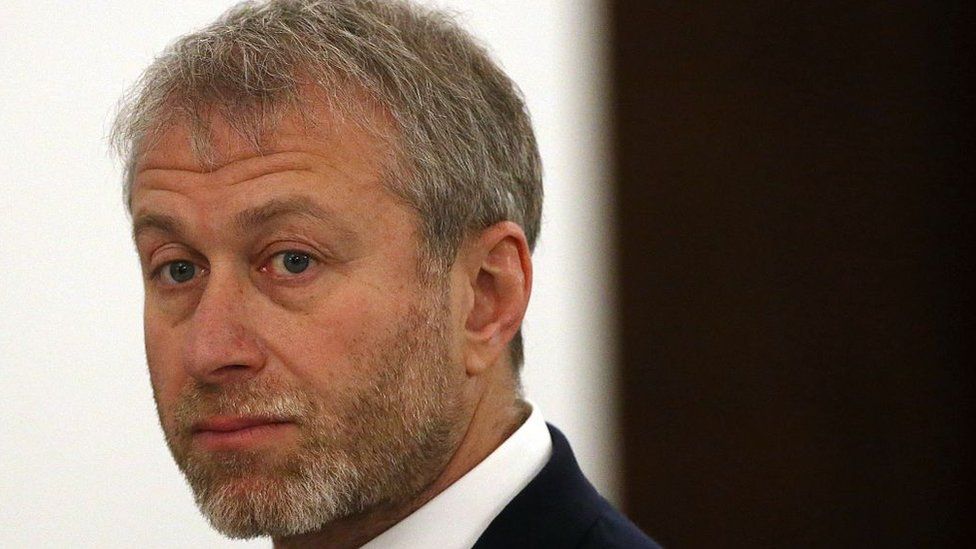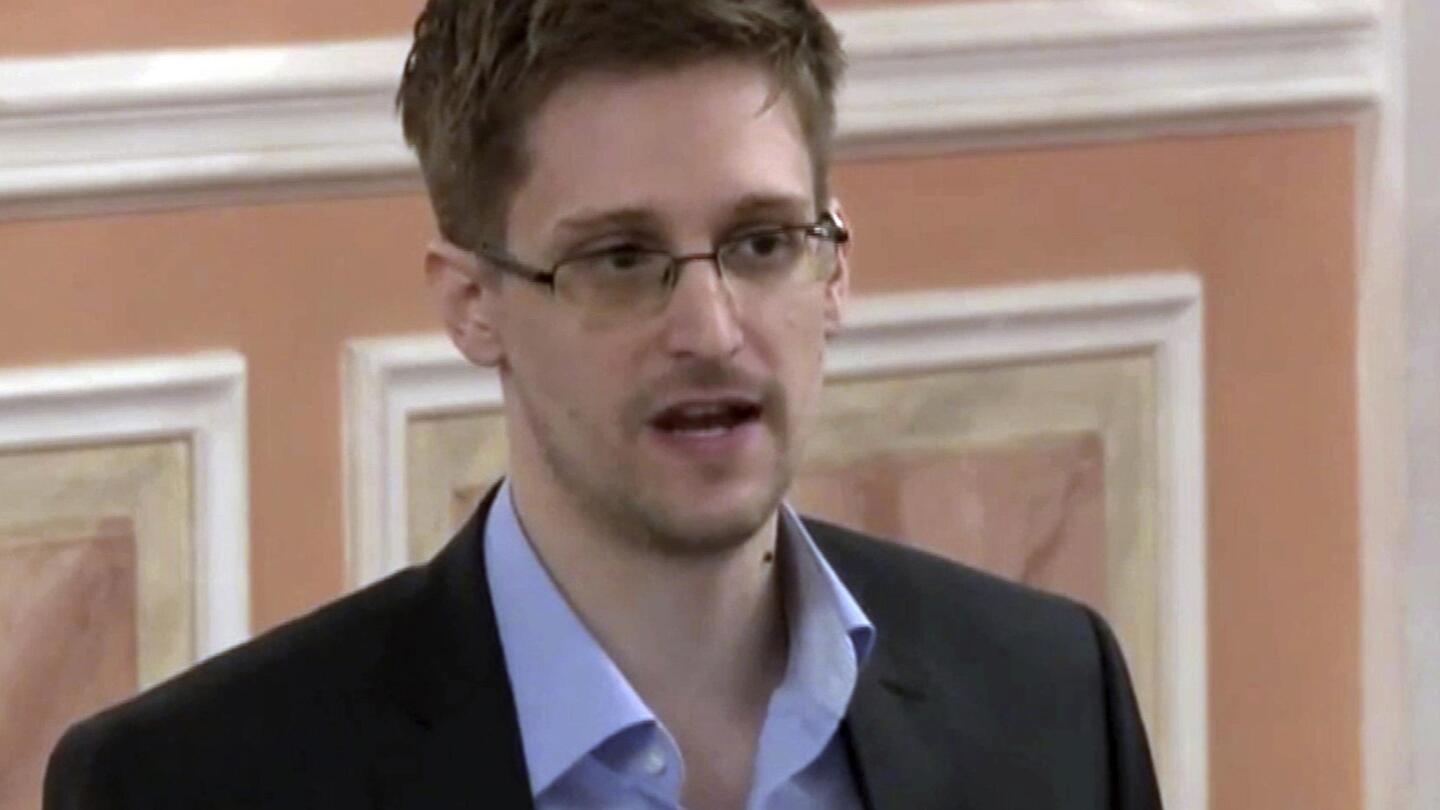You are using an out of date browser. It may not display this or other websites correctly.
You should upgrade or use an alternative browser.
You should upgrade or use an alternative browser.
RUSSIA 🇷🇺 Thread: Wikileaks=FSB front, UKRAINE?, SNOWED LIED; NATO Aggression; Trump = Putins B!tch
- Thread starter ☑︎#VoteDemocrat
- Start date
More options
Who Replied?This is why Putin must be stopped. He won't stop at Ukraine. He Won't stop at Moldova.
He won't stop at Bosnia
he's going for the whole continent.
He won't stop at Bosnia
he's going for the whole continent.
Roman Abramovich: New evidence highlights corrupt deals
Roman Abramovich: New evidence highlights corrupt deals
4 hours ago
By BBC Panorama
Reporting team

A BBC investigation has uncovered new evidence about the corrupt deals that made Roman Abramovich's fortune.
The Chelsea owner made billions after buying an oil company from the Russian government in a rigged auction in 1995.
Mr Abramovich paid around $250m (£190m) for Sibneft, before selling it back to the Russian government for $13bn in 2005.
His lawyers say there is no basis for alleging he has amassed very substantial wealth through criminality.
The Russian billionaire was sanctioned by the UK government last week because of his links to Russian President Vladimir Putin.
Mr Abramovich's assets have been frozen and he has been disqualified as a director of Chelsea Football Club.
The Russian billionaire has already admitted in a UK court that he made corrupt payments to help get the Sibneft deal off the ground.
He was being sued in London by his former business associate Boris Berezovsky in 2012.
Mr Abramovich won the case, but he described in court how the original Sibneft auction was rigged in his favour and how he gave Mr Berezovsky $10m to pay off a Kremlin official.
BBC Panorama has obtained a document that is thought to have been smuggled out of Russia.
The information was given to the programme by a confidential source, who says it was secretly copied from files held on Mr Abramovich by Russian law enforcement agencies.
The BBC cannot verify that, but checks with other sources in Russia have backed up many of the details in the five-page document.
The document says that the Russian government was cheated out of $2.7bn in the Sibneft deal - a claim supported by a 1997 Russian parliamentary investigation. The document also says that the Russian authorities wanted to charge Mr Abramovich with fraud.
It says: "The Dept. of Economic Crimes investigators came to the conclusion that if Abramovich could be brought to trial he would have faced accusations of fraud… by an organised criminal group."
Roman Abramovich's Dirty Money is on BBC One, Monday 14 March, at 20:00 GMT and on BBCiPlayer afterwards
Panorama tracked down Russia's former chief prosecutor, who investigated the deal in the 1990s.
Yuri Skuratov did not know about the secret document, but he independently confirmed many of the details about the Sibneft sale.
Mr Skuratov told the programme: "Basically, it was a fraudulent scheme, where those who took part in the privatisation formed one criminal group that allowed Abramovich and Berezovsky to trick the government and not pay the money that this company was really worth."
The document also suggests Mr Abramovich was protected by former Russian President Boris Yeltsin.
It says law enforcement files on Mr Abramovich were moved to the Kremlin and that an investigation by Mr Skuratov was stopped by the president.
The document says: "Skuratov was preparing a criminal case for the confiscation of Sibneft on the basis of the investigation of its privatisation. The investigation was stopped by President Yeltsin … Skuratov was dismissed from his office."
Mr Skuratov was sacked after the release of a sex tape in 1999. He says it was a stitch-up to discredit him and his investigation.
He said: "This whole thing was obviously political, because in my investigations I came very close to the family of Boris Yeltsin, including via this investigation of the Sibneft privatisation."
Mr Abramovich remained in the Kremlin inner circle when Vladimir Putin came to power in 2000.
The document contains details of another rigged auction two years later, involving a Russian oil company called Slavneft.
Mr Abramovich formed a partnership with another firm to buy Slavneft, but a rival Chinese company was planning to bid almost twice as much.
Many powerful people - from the Kremlin to the Russian parliament - would have stood to lose out if the Chinese won the auction
The document says that a member of the Chinese delegation was kidnapped when they arrived in Moscow for the auction.
"CNPC, Chinese company, a very strong competitor, had to withdraw from the auction after one of its representatives was kidnapped upon arrival at Moscow Airport and was released only after the company declared its withdrawal."
The kidnapping story is backed up by independent sources who did not know about the document.
Vladimir Milov was Russia's deputy energy minister in the run up to the Slavneft sale. He didn't comment on the kidnapping story, but he said senior political figures had already decided that Mr Abramovich's partnership would win the auction.
"I said, look, the Chinese want to come in and they want to pay a much bigger price. They say it doesn't matter, shut up, none of your business. It's already decided. Slavneft goes to Abramovich, the price is agreed. The Chinese will be dragged out somehow."
There is no suggestion that Mr Abramovich knew anything about the kidnapping plot, or played any part in it.
His lawyers told the BBC the kidnap claim "is entirely unsubstantiated" and he has "no knowledge of such incident".
Different factions had been fighting for control of Slavneft and there was widespread opposition to the Chinese bid.
Whatever the reason for the Chinese withdrawal, Mr Abramovich's partnership had the only bid left on the table. And they bought Slavneft at a knockdown price.
Mr Abramovich's lawyers say allegations of corruption in the Slavneft and Sibneft deals are false, and he denies he was protected by Mr Yeltsin.
fukk

 www.businessinsider.com
www.businessinsider.com
13 hours ago

Paul Manafort, right, with Trump at the Republican National Convention in 2016.Brooks Kraft/Getty Images
Kilimnik then passed the data on to Russian spies, according to the US Treasury Department, which has characterized the data as "sensitive information on polling and campaign strategy."
Manafort's acknowledgment contradicts his earlier denials during the investigation into election interference conducted by the special counsel Robert Mueller. At the time, Manafort denied he had anything to do with the transfer of sensitive campaign data. It also differs from the account he gives in his forthcoming memoir, "Political Prisoner," in which he concedes that he only presented Kilimnik with "talking points" on polling data that was already public.
In his interview with Insider, Manafort reiterated that at least some of the data was public. "The data that I shared with him was a combination of public information and stuff for the spring that was, it was old," he said. It's one of Manafort's primary lines of defense — that the data he funneled to Kilimnik was essentially worthless.
In fact, in an email seized by Mueller, Manafort ordered his deputy Rick Gates, just a few hours before the two men met with Kilimnik in person, to print out four pages of internal campaign-polling data showing Trump's city-by-city strength in 18 swing states. Contrary to Manafort's claim, the data was not from the spring. It was collected by the campaign in mid-July — two weeks before the meeting with Kilimnik.
Manafort denied to Insider that the printouts were given to Kilimnik. But he said he directed Gates to feed Kilimnik polling data via email, to "keep Konstantin informed." He also worked hard to keep his dealings with Kilimnik a secret. In its report on Russian interference in the election, the Senate Intelligence Committee wrote that it "had limited insight into Kilimnik's communications with Manafort" because the men relied on "sophisticated communications security practices." These included encryption, burner phones, and "foldering" — writing emails as drafts in a shared account.

Manafort told Insider that he directed his deputy, Rick Gates, above, to feed Kilimnik polling data via email to "keep Konstantin informed." The goal was to use his access to Trump to drum up business for himself.Win McNamee/Getty Images
Gates told the FBI that at Manafort's direction, he began sending Kilimnik internal polling data in the spring of 2016 over WhatsApp and continued updating it periodically. He deleted his messages to Kilimnik daily. All told, according to court filings, he sent 75 pages of polling data to Kilimnik. Other than the four pages from August 2, the data itself has never been made public.
Manafort told Insider the purpose of sending the polling data to Kilimnik was not to help elect Trump by aiding the Russians in their attempts to undermine the election but rather to lay the groundwork for future business deals. "It was meant to show how Clinton was vulnerable," he said. By his account, he was trying to use his influence with the future US president to extract money from pro-Russia oligarchs.
Kilimnik, a Soviet-born political consultant with a Russian passport, had worked closely with Manafort for years in his lobbying and election efforts on behalf of Viktor Yanukovych, the former president of Ukraine. Mueller and the FBI concluded that Kilimnik had ties to Russian intelligence. The Senate Intelligence Committee went further, calling Kilimnik "a Russian intelligence officer." Kilimnik was sanctioned by the Treasury Department in 2021 for providing Russian intelligence with "sensitive information" from the Trump campaign.
Konstantin Kilimnik, above, worked with Manafort for years. "None of us believed KK worked for Russian intelligence," Manafort told Insider.Federal Bureau of Investigation
Manafort said he had no reason to think Kilimnik was spying for Russia and pointed out that Kilimnik had been vetted and cleared by Yanukovych's staff. "None of us believed KK worked for Russian intelligence," he told Insider. But the allegations shouldn't have come as a surprise. Kilimnik was open about the fact that he'd attended a language school run by the Soviet military, and Gates told the FBI that Manafort's own employees believed Kilimnik had worked as a linguist for Russian intelligence.
Kilimnik, for his part, claims to have been a victim of Russophobia. "Had I been of a different nationality, nobody would have given a damn," he told Insider, via email. Under federal indictment and wanted by the FBI, he is reported to be living near Moscow.
Mueller was ultimately unable to prove that the Trump campaign illegally conspired with Russia to influence the election. And it seems highly unlikely that the information Manafort provided to Kilimnik was responsible for tipping the race to Trump, given the relatively modest size of Russia's influence campaign. But by Manafort's own admission, the incident makes clear that Trump's campaign chairman couldn't even wait until the election was over to try to cash in on his access to and influence over the Republican nominee.
In the interview with Insider, Manafort said the conditions of his detention had caused his memory to deteriorate and blamed his imprisonment for the many inconsistencies he told Mueller's team. His lawyers made a similar claim in court, arguing that Manafort's failure to recall details about sharing data with Kilimnik was not proof he "intentionally lied." The court disagreed, finding that Manafort had purposefully deceived prosecutors.
Exclusive: Paul Manafort admits he passed Trump campaign data to a suspected Russian asset
Trump's former campaign chair tells Insider he shared polling data with longtime business associate Konstantin Kilimnik to help secure business deals.
Exclusive: Paul Manafort admits he passed Trump campaign data to a suspected Russian asset
Mattathias Schwartz13 hours ago
Paul Manafort, right, with Trump at the Republican National Convention in 2016.Brooks Kraft/Getty Images
- Paul Manafort, Trump's 2016 campaign chairman, sat down for an exclusive interview with Insider.
- Manafort said he shared polling data with an associate thought to be tied to Russian intelligence.
- Manafort said he shared the data to make money for himself, not to get Trump elected.
Kilimnik then passed the data on to Russian spies, according to the US Treasury Department, which has characterized the data as "sensitive information on polling and campaign strategy."
Manafort's acknowledgment contradicts his earlier denials during the investigation into election interference conducted by the special counsel Robert Mueller. At the time, Manafort denied he had anything to do with the transfer of sensitive campaign data. It also differs from the account he gives in his forthcoming memoir, "Political Prisoner," in which he concedes that he only presented Kilimnik with "talking points" on polling data that was already public.
In his interview with Insider, Manafort reiterated that at least some of the data was public. "The data that I shared with him was a combination of public information and stuff for the spring that was, it was old," he said. It's one of Manafort's primary lines of defense — that the data he funneled to Kilimnik was essentially worthless.
In fact, in an email seized by Mueller, Manafort ordered his deputy Rick Gates, just a few hours before the two men met with Kilimnik in person, to print out four pages of internal campaign-polling data showing Trump's city-by-city strength in 18 swing states. Contrary to Manafort's claim, the data was not from the spring. It was collected by the campaign in mid-July — two weeks before the meeting with Kilimnik.
Manafort denied to Insider that the printouts were given to Kilimnik. But he said he directed Gates to feed Kilimnik polling data via email, to "keep Konstantin informed." He also worked hard to keep his dealings with Kilimnik a secret. In its report on Russian interference in the election, the Senate Intelligence Committee wrote that it "had limited insight into Kilimnik's communications with Manafort" because the men relied on "sophisticated communications security practices." These included encryption, burner phones, and "foldering" — writing emails as drafts in a shared account.
Manafort told Insider that he directed his deputy, Rick Gates, above, to feed Kilimnik polling data via email to "keep Konstantin informed." The goal was to use his access to Trump to drum up business for himself.Win McNamee/Getty Images
Gates told the FBI that at Manafort's direction, he began sending Kilimnik internal polling data in the spring of 2016 over WhatsApp and continued updating it periodically. He deleted his messages to Kilimnik daily. All told, according to court filings, he sent 75 pages of polling data to Kilimnik. Other than the four pages from August 2, the data itself has never been made public.
Manafort told Insider the purpose of sending the polling data to Kilimnik was not to help elect Trump by aiding the Russians in their attempts to undermine the election but rather to lay the groundwork for future business deals. "It was meant to show how Clinton was vulnerable," he said. By his account, he was trying to use his influence with the future US president to extract money from pro-Russia oligarchs.
Kilimnik, a Soviet-born political consultant with a Russian passport, had worked closely with Manafort for years in his lobbying and election efforts on behalf of Viktor Yanukovych, the former president of Ukraine. Mueller and the FBI concluded that Kilimnik had ties to Russian intelligence. The Senate Intelligence Committee went further, calling Kilimnik "a Russian intelligence officer." Kilimnik was sanctioned by the Treasury Department in 2021 for providing Russian intelligence with "sensitive information" from the Trump campaign.
Konstantin Kilimnik, above, worked with Manafort for years. "None of us believed KK worked for Russian intelligence," Manafort told Insider.Federal Bureau of Investigation
Manafort said he had no reason to think Kilimnik was spying for Russia and pointed out that Kilimnik had been vetted and cleared by Yanukovych's staff. "None of us believed KK worked for Russian intelligence," he told Insider. But the allegations shouldn't have come as a surprise. Kilimnik was open about the fact that he'd attended a language school run by the Soviet military, and Gates told the FBI that Manafort's own employees believed Kilimnik had worked as a linguist for Russian intelligence.
Kilimnik, for his part, claims to have been a victim of Russophobia. "Had I been of a different nationality, nobody would have given a damn," he told Insider, via email. Under federal indictment and wanted by the FBI, he is reported to be living near Moscow.
Mueller was ultimately unable to prove that the Trump campaign illegally conspired with Russia to influence the election. And it seems highly unlikely that the information Manafort provided to Kilimnik was responsible for tipping the race to Trump, given the relatively modest size of Russia's influence campaign. But by Manafort's own admission, the incident makes clear that Trump's campaign chairman couldn't even wait until the election was over to try to cash in on his access to and influence over the Republican nominee.
In the interview with Insider, Manafort said the conditions of his detention had caused his memory to deteriorate and blamed his imprisonment for the many inconsistencies he told Mueller's team. His lawyers made a similar claim in court, arguing that Manafort's failure to recall details about sharing data with Kilimnik was not proof he "intentionally lied." The court disagreed, finding that Manafort had purposefully deceived prosecutors.
Read the full interview with Manafort.

Putin grants Russian citizenship to whistleblower Edward Snowden
The former NSA contractor was given asylum in Russia after revealing the extent of the U.S. government's surveillance program.

Russia gives citizenship to ex-NSA contractor Edward Snowden
Russian President Vladimir Putin has granted Russian citizenship to Edward Snowden, a former contractor with the U.S. National Security Agency.
Satsui no Hadou
CHICANO 🇲🇽 🇺🇸
Snowden was just an unwitting dork. He was trying to do the right thing but he was in way over his head. In the future we will see the full extent of Russian cyber operations around the world.
Greenwald wasn't even journalist. He was gifted that story. He was a targeted leak. The shyt was obvious from the jump.Snowden was just an unwitting dork. He was trying to do the right thing but he was in way over his head. In the future we will see the full extent of Russian cyber operations around the world.
I've been documented calling this out for a decade on here.
Again, another example of @FAH1223 being wrong on this shyt.
Satsui no Hadou
CHICANO 🇲🇽 🇺🇸
I’ve speculated on this for some time, especially in light of the Russian interference in the 2016 election. It astounds me just how we have an open conspiracy before our eyes, and yet, it is resisted and expressed as little more than a fairy tale. These groups have been running around wreaking havoc since at least the Ron Paul days(that I can place, at least).Greenwald wasn't even journalist. He was gifted that story. He was a targeted leak. The shyt was obvious from the jump.
I've been documented calling this out for a decade on here.
Again, another example of @FAH1223 being wrong on this shyt.
It’s necessary to connect the dots. Snowden was merely a tool utilized to sow distrust in the government on the technological front, feeding into the narrative that the media merely functions as an informal apparatus of the state. Wikileaks damaged American influence worldwide, and curiously enough, none of it was ever directed at Russia.
Furthermore, in the 2016 race, the GOP was also hacked, and yet none of that sensitive information has ever seen the light of day. Obama made an attempt to warn the public, but declined in fear of appearing partisan, and also due to threats from McConnell. Weeks before the election and those emails were released, torpedoing Hillary’s chances.
